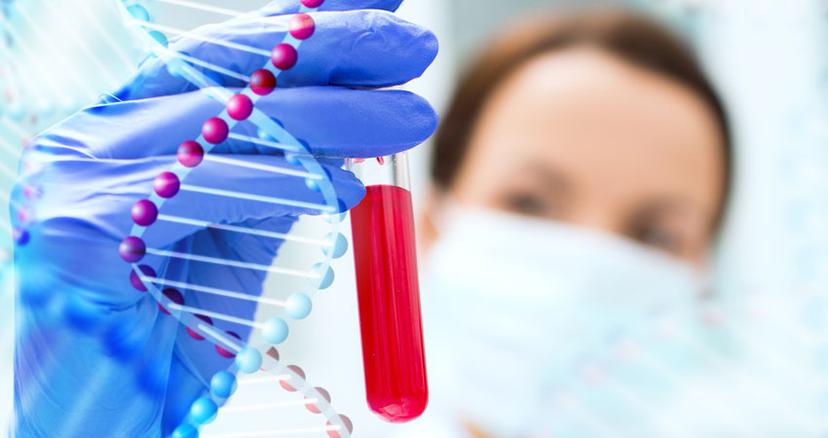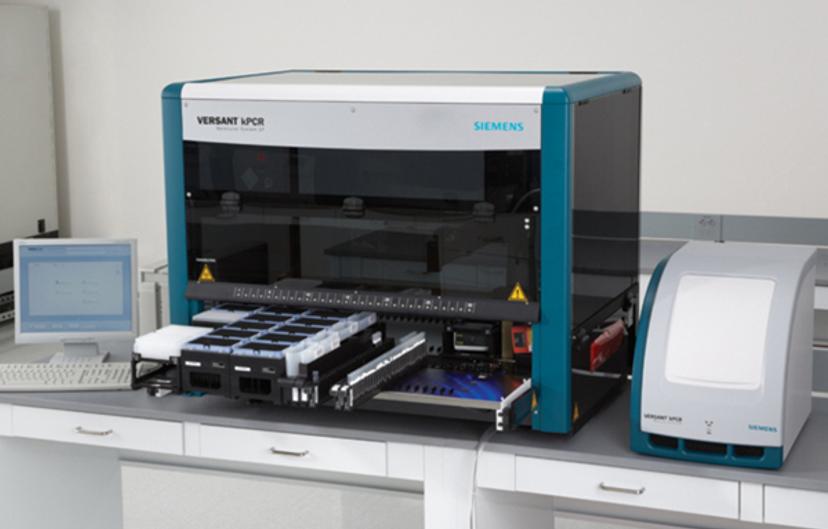Clinical Genetics Automation – Where are we Now?
Increased demand for molecular testing can be met with modern automation solutions
6 Jun 2016

Shutterstock image/Syda Productions
Clinical laboratories are increasingly using molecular testing for diagnostic purposes, and for these labs, clinical genetics automation is becoming a more pressing requirement.
Many routine clinical labs have the capacity to carry out some polymerase chain reaction (PCR) based tests. Special rooms are designated to the procedure to prevent contamination, and these rooms are stocked with equipment suitable for testing small batches of samples. These labs often carry out a small number of manual molecular tests, samples for which have been frozen and stored until there is enough work to make a batch test cost-effective. Further testing or specialist molecular testing is often sent away to a specialist testing facility.
Increased testing requirements
However, the increasing demand for molecular tests by clinicians has put increased demand on routine laboratories to be able to carry out in-house clinical genetics automated testing. Not only that, there is a requirement for increased turn-around times, something that batch, manual testing is not amenable to.
There are a number of possibilities available to these labs. Either they can automate parts of the PCR process to improve efficiency, reduce manual labor and minimize human error; or they can invest and future-proof, with a more expensive clinical genetics automation solution, which is able to run samples on-demand.
Clinical genetics automation
Modern automation solutions for the clinical genetics lab use real-time PCR, a technique that monitors the amplification of the target DNA molecule as it is occurring (in real-time), rather than at the end of the reaction. There are a number of state-of-the-art automation platforms on the market.
The VERSANT® kPCR Molecular System* is an automated solution that provides efficient sample extraction, flexible open channel capabilities, and quality assays for infectious disease testing. The platform employs proprietary extraction technology that supports multiple sample types. System flexibility, closed-tube processing and shorter assay run times, offer labs a simple, convenient solution for molecular testing.

The VERSANT® kPCR Molecular System
* Not available for sale in the U.S. Product availability varies from country to country and is subject to local regulatory requirements
The GeneXpert System is a closed, self-contained, fully-integrated and automated platform that provides results in a timely manner with minimal risk of contamination. The GeneXpert System combines on-board sample preparation with real-time PCR (polymerase chain reaction) amplification and detection functions for fully integrated and automated nucleic acid analysis. Modular in design, the GeneXpert System has a variety of configurations to meet the broad range of testing demands of any clinical environment.
The BD MAX™ System, is a fully automated platform that gives users the power to consolidate and standardize a broad range of molecular tests. The system has integrated and fully-automated extraction and thermocycling steps and is classed as being CLIA Moderately Complex. The platform is able to run both FDA-cleared and open system assays.
The cobas® 4800 System provides a platform to perform qualitative in vitro nucleic acid amplification tests for the detection of Chlamydia trachomatis/Neisseria gonorrhoeae (CT/NG), and Human Papilloma Virus (HPV) in clinical specimens. The cobas® 4800 system integrates fully automated total nucleic acid isolation directly from primary and secondary sample tubes, automated PCR setup, and real-time PCR.
Modern automated PCR platforms have evolved to meet the needs of the laboratory. Investing in clinical genetics automation is the best way to future proof the genetics laboratory and meet the increasing demands of the clinicians.
